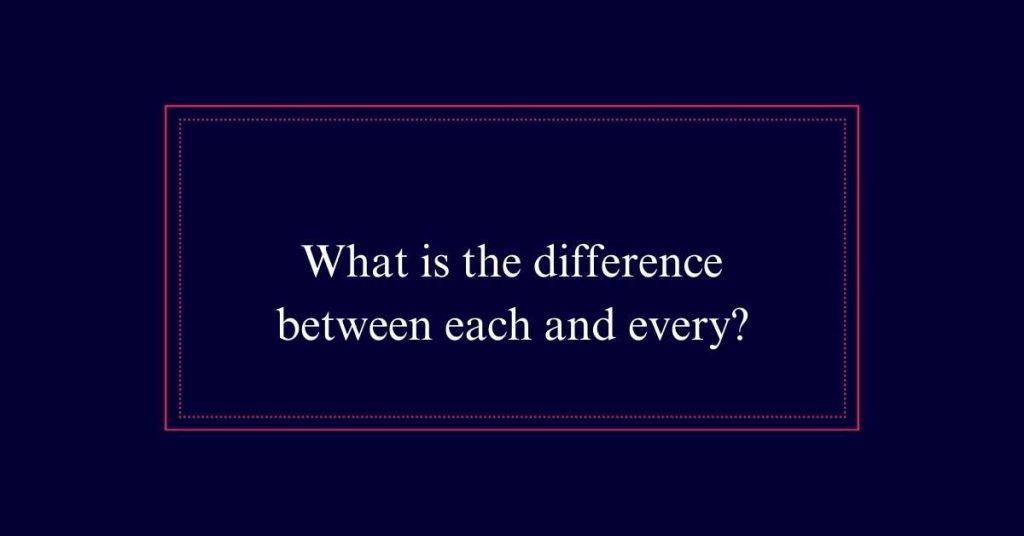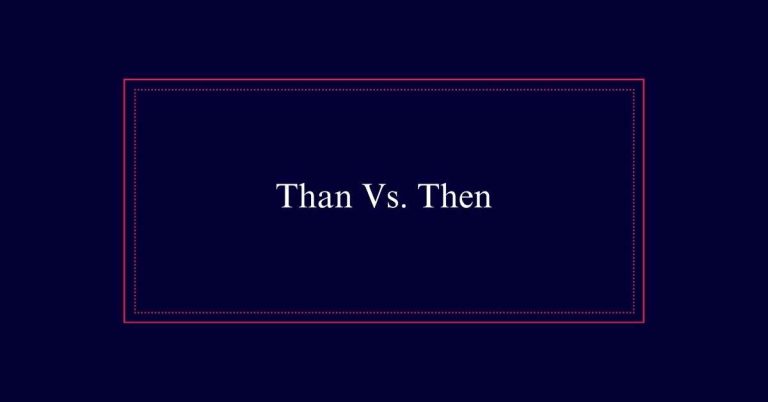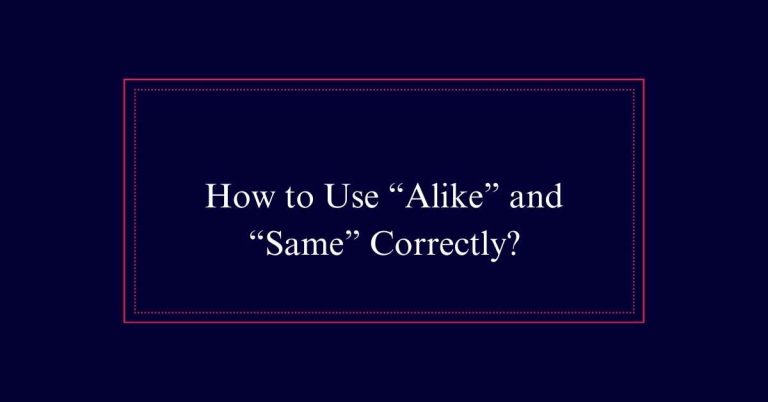What is the difference between each and every?
‘Each’ and ‘every’ are used with countable nouns but have different focuses. ‘Each’ emphasizes individual items within a group, suitable for small groups, and highlights individual attention. ‘Every’ refers to all members of a group collectively, often used for larger groups, implying inclusiveness.
Definitions of Each and Every
Understanding the definitions of ‘each’ and ‘every’ is essential for proper usage in English. Both words refer to groups of items but with different focuses.
‘Each’ emphasizes individual elements within a group. For example, ‘Each student received a book,’ highlights every single student individually.
On the other hand, ‘every’ refers to the collective group, giving a sense of inclusivity. For instance, ‘Every student passed the exam,’ suggests all students as a whole.
Both are used with countable nouns and require correct subject-verb agreement. It is important to recognize whether you are referring to individual members or the entire group to ensure accurate and effective communication.
Usage With Countable Nouns
When using ‘each’ and ‘every,’ it is crucial to apply them with countable nouns to maintain grammatical accuracy. Both words are used to refer to individual items within a group or the group as a whole.
For example, ‘Each student received a certificate’ emphasizes individual students, while ‘Every student received a certificate’ views the students collectively.
Importantly, ‘each’ can be paired with singular nouns to highlight individual attention, as in ‘Each dog has a unique collar.’ In contrast, ‘every’ also pairs with singular nouns but often implies inclusiveness, such as ‘Every house on the street is painted.’
Group Size Considerations
Considering the size of the group is key when choosing between ‘each’ and ‘every.’ ‘Each’ is best used when the group is small or when you want to emphasize individual members. For example, ‘Each student received a certificate.’ This implies a focus on individual recognition.
In contrast, ‘every’ is more suitable for larger groups, indicating a collective without singling out individuals. For instance, ‘Every student in the class participated’ suggests a general inclusion.
Essentially, ‘each’ works well for smaller, more intimate groups, while ‘every’ fits larger, more general groupings.
Referring to Individuals Vs. Groups
Distinguishing between referring to individuals and groups is essential when choosing between ‘each’ and ‘every.’ ‘Each’ highlights individual members within a group. For instance, ‘Each student received a certificate’ points to the individuality of the students.
On the other hand, ‘every’ refers to the group as a whole. For example, ‘Every student must attend the meeting’ addresses the entire group collectively.
Understanding this difference guarantees clear communication. Use ‘each’ when the focus is on individual elements. Use ‘every’ when referring to the collective nature of the group.

Subject-Verb Agreement
Ensuring correct subject-verb agreement is essential when using ‘each’ and ‘every’. Both words are singular and require singular verbs.
For example, ‘Each student is responsible for their homework’ and ‘Every employee receives a bonus.’ Notice that in both sentences, the verb agrees with the singular subject.
When ‘each’ or ‘every’ is used with a plural noun, the verb still remains singular.
An example is, ‘Each of the players has a unique skill.’ Here, ‘players’ is plural, but ‘has’ is singular to match ‘each’.
Each of Vs. Every One of
Understanding subject-verb agreement leads us to explore the correct use of ‘each of’ and ‘every one of’. Both phrases precede a plural noun but differ in focus. ‘Each of’ highlights individual members within a group, while ‘every one of’ emphasizes the group collectively.
- Use ‘each of’ to specify individual attention within a group.
- Use ‘every one of’ to address all members as a collective whole.
- Guarantee the verb agrees with the singular or plural subject.
For example, ‘She gave each of them assignments,’ focuses on individual assignments given to each person.
Conversely, ‘The teacher graded every one of the tests,’ stresses that all tests were graded.
Examples Using Each
In various contexts, ‘each’ can be used to emphasize individuality within a group. For example, ‘Each person recalled their best birthday memory’ highlights individual experiences.
Additionally, ‘They were each holding a copy of the book’ indicates that every person had their own book.
In another instance, ‘Each of the graduates thanked the history teacher‘ signifies personal gratitude from every graduate.
The phrase ‘They looked at each other’ illustrates a mutual action between two people.
Using ‘each’ in sentences helps guarantee that the focus remains on individual members rather than the group as a whole.
Examples Using Every
When using ‘every,’ the emphasis is on the entire group collectively rather than on individual members. This means that ‘every’ treats the group as a single entity.
Here are some examples to illustrate this usage:
- Every person at the party stopped talking.
- Every one of the students passed the test.
- Almost every contestant wore headphones.
These examples show how ‘every’ is used to refer to all members of a group as a whole. It highlights the collective nature of the group without focusing on individual members.
Common Mistakes
Many common mistakes arise from confusing ‘each’ and ‘every,’ leading to incorrect subject-verb agreement and unclear meaning.
One common error is using a singular verb with ‘each’ when referring to a plural noun, like saying ‘Each of the students are present’ instead of ‘Each of the students is present.’
Another mistake is using ‘every’ when referring to individuals within a group, such as ‘Every of the members has a vote’ instead of ‘Each of the members has a vote.’
Confusion also occurs when using ‘each’ and ‘every’ interchangeably, which can make sentences unclear.
Summary of Key Differences
To clarify the distinctions between ‘each’ and ‘every,’ it is fundamental to focus on their unique applications in language.
‘Each’ emphasizes individuals within a group, while ‘every’ refers to the group as a whole. Understanding their differences helps in accurate usage.
- Individual vs. Collective:
‘Each’ highlights individual entities, ‘every’ considers the group collectively.
- Subject-Verb Agreement:
‘Each’ often pairs with singular verbs; ‘every’ always does.
- Contextual Examples:
‘Each person has a role’ vs. ‘Every person has a role.’






